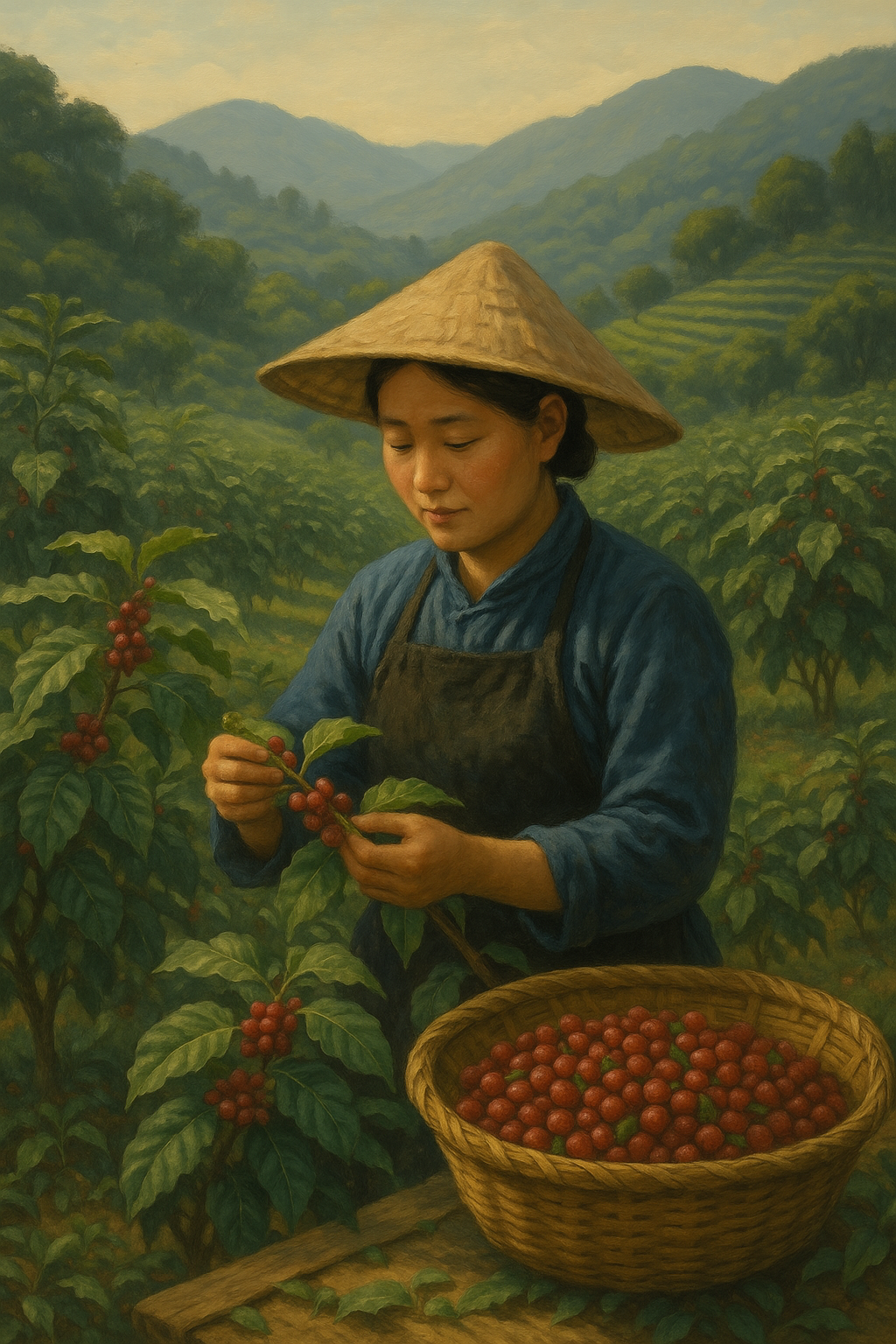
From Tea Capital to Coffee Hub: China’s Pu’er Shifts Focus as Tastes Evolve
Nestled among the lush green hills of southwestern China, the city of Pu’er — historically renowned for its fermented tea — is undergoing a transformation. With changing consumer preferences, especially among the younger generation, coffee is rapidly gaining ground in a region once defined by centuries of tea tradition.
At his café overlooking steep coffee-covered slopes, 25-year-old barista Liao Shihao brews pour-over coffee for a growing number of curious visitors. “People come here to taste our filtered coffee,” he tells AFP. “They appreciate the variety of flavors. In the past, they mostly drank instant or commercial coffee and were hesitant to try anything new.”
Liao’s family has been cultivating their plot — aptly named Xiaowazi or “Little Valley” — for three generations. The farm sits in a shaded valley where coffee trees form tidy rows on steep terrain, and fresh beans dry on wooden racks. Curious tourists are increasingly making their way to Pu’er’s hillside cafés to sample the region’s emerging specialty coffee.
“It’s excellent,” says 21-year-old visitor Kai Xuen, while sipping on a tasting flight.
According to Chinese government statistics, Pu’er producers now sell tens of thousands of tons of coffee beans annually to major cities across the country.
“No One Knew Coffee Back Then”
While cities like Beijing and Shanghai have embraced a booming café culture driven by urban consumers aged 20 to 40, Pu’er’s journey into coffee is still relatively young.
“Coffee from our region offers a creamy body and a smooth mouthfeel,” explains Liao Shihao.
Widespread cultivation of coffee in Pu’er didn’t begin until the 1980s. For decades, the area remained far more famous for its signature fermented tea, exported throughout East Asia and beyond. Liao’s grandfather, Liao Xiugui, recalls, “No one knew anything about coffee when I first arrived here decades ago.” He was among the few Chinese who studied coffee culture in its early days.
Thanks to the region’s mild climate and high altitude, Pu’er proved to be ideal for coffee cultivation. “Our coffee isn’t overly bitter,” says the 83-year-old, “and it has delicate, fragrant notes and a fruity acidity — all part of its unique character.”
The beans are grown without synthetic pesticides, in biodiverse mixed-crop farms, yielding around 500 tons annually. Xiugui drinks two to three cups a day and credits coffee for his energy and health: “It keeps you young, it improves your health… it slows aging!” he laughs. “And with today’s work pressure, we all need a boost!”
A New Economic Driver
Though China still lags behind coffee giants like Brazil, Vietnam, and Colombia, its domestic coffee production has grown significantly in recent years, with Yunnan Province — bordering Southeast Asia — leading the charge. The Pu’er region is at the heart of this movement.
During a March visit, Chinese President Xi Jinping praised Pu’er coffee as a product that can now “represent China.” In response, local authorities have rolled out policies to support the sector, enhance production, attract investment, and encourage exports.
Officials are also combining coffee with tourism to attract domestic visitors and stimulate local consumption — a key pillar in China’s broader economic recovery strategy.
For farmer Yu Dun, 51, the shift to coffee has changed her life. She diversified her income by organizing guided farm tours, opening a small lodge, and launching a restaurant that serves Dai ethnic dishes paired with her own roasted coffee.
Yu says her income from coffee has increased tenfold since she began roasting beans herself. “People used to say coffee was only for the rich,” she smiles. “Now, everything has changed.”



